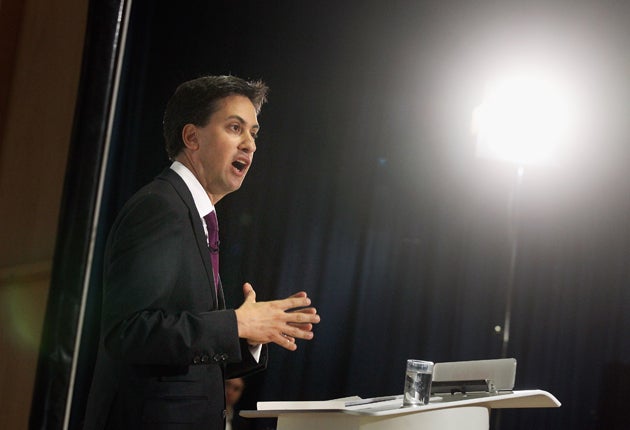Amol Rajan: Class debate has clearly struck a nerve
FreeView from the editors at i

Your support helps us to tell the story
From reproductive rights to climate change to Big Tech, The Independent is on the ground when the story is developing. Whether it's investigating the financials of Elon Musk's pro-Trump PAC or producing our latest documentary, 'The A Word', which shines a light on the American women fighting for reproductive rights, we know how important it is to parse out the facts from the messaging.
At such a critical moment in US history, we need reporters on the ground. Your donation allows us to keep sending journalists to speak to both sides of the story.
The Independent is trusted by Americans across the entire political spectrum. And unlike many other quality news outlets, we choose not to lock Americans out of our reporting and analysis with paywalls. We believe quality journalism should be available to everyone, paid for by those who can afford it.
Your support makes all the difference.I've written here before about how this young newspaper thrives because many of you seem to think the "i" on the front page stands for "interactive".
The quality of feedback we get here at i – via Facebook, Twitter, email and post – is wonderful. Last week, when I claimed the working class as the Victorians understood them had two properties – manual labour and class solidarity – which today's more atomised poor have much less of, your responses were energetic.
Sue Santilhano, for instance, wrote that I was "inaccurate and ill-informed", that "working class is not defined by the manufacturing industries' manual labourers", and that "class consciousness still exists, though maybe not within the chattering classes Amol Rajan conjures the fiction of 'meaningful history' from". I suppose now is the time to confess that not only do I wear a tie to work, but I also live in Islington.
The sharpest and most erudite response came via Facebook, from my dear friend Edward Breakenridge, himself an academically brilliant second-generation immigrant from a working class family, educated at Cambridge University and now a teacher at Mossbourne Academy in Hackney. Ed said that "the term working class [as used by a rioter I was quoting] makes no reference to whether people are employed or not". He went on "there are still people in this country working hard to produce goods, despite the fact that other markets are cheaper and probably more efficient at doing so", and added "class consciousness is still very real".
I'm surprised so many readers took me to be attacking the poor generally, and specifically 'Tyrone', the young man whose use of the term working class raised my eyebrow. That wasn't my intention. But I see that I have pinched a nerve, and where the future of the poor is concerned, the nerves of public discussion are worth pinching.
So this theme is one to develop. A related question, then, ahead of next week. The Labour Party was invented as the parliamentary representation of the unionised poor. The unions are still crucial to its constitution (and indeed made Ed Miliband party leader). But unions are a much weaker force in our society now than a century ago, largely because of Margaret Thatcher. And New Labour was intensely relaxed about people getting filthy rich, provided they pay their taxes. In such circumstances, what is the Labour Party for?
Join our commenting forum
Join thought-provoking conversations, follow other Independent readers and see their replies
Comments